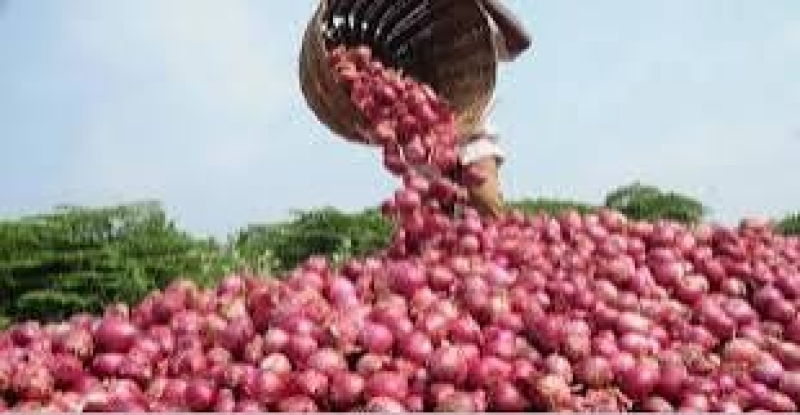- Bangladesh criticises Rajnath remarks on Yunus |
- ‘Very unhealthy’ air quality recorded in Dhaka Sunday morning |
- Harassment, corruption shade Begum Rokeya University, Rangpur |
- Sikaiana Islanders Face Rising Seas and Uncertain Future |
- BD Election Commission to begin political dialogue this week |
Govt may allow onion imports if prices remain high this week

The government may permit onion imports if prices in the local market fail to ease within this week, Commerce Adviser Sk Bashir Uddin said on Sunday, citing concerns over a possible supply shortage.
“If prices don’t come down, we’ll allow imports — the ministry has already received 2,800 applications,” he told reporters at a briefing at the Commerce Ministry.
Responding to a question about possible market manipulation or syndication behind the sudden spike, the adviser said, “Show us where the syndicate is …we’ll take action with full authority.”
He said market monitoring is ongoing, with the Directorate of National Consumers’ Right Protection and the Bangladesh Trade and Tariff Commission continuing their surveillance.
“It’s not that anything has happened to justify a Tk 40–50 per kg increase within a week,” Bashir Uddin said, adding that allowing imports now could adversely affect the overall market economy. “New onions are expected to arrive in the market within two weeks.”
Commenting on recent soybean purchase deals by several companies with the United States, the adviser said private importers found the US market more competitive than Brazil, prompting them to buy from there.
When asked whether the US soybean purchases would impact edible oil prices, he clarified that the contracts mainly involve soybean seeds, which yield about 25% oil, with the rest used for animal feed. “The focus here is more on feed than oil,” he added.
Meanwhile, onion prices have nearly doubled in the past two weeks, surging from Tk 60–70 per kg to Tk 110–120 in retail markets, reports UNB.

